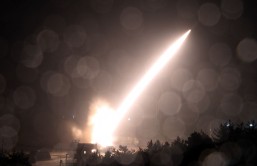A spokesperson for Iraqi Prime Minister Haider al-Abadi confirmed the construction of a security wall around Baghdad on Sunday but ensured the public that it is "not politically motivated" or aimed at "achieving demographic change." The news comes after the plan to build the wall was seemingly rejected by the PM in an earlier the statement.
The plan for the wall was originally drafted by the Interior Ministry in a bid to prevent Islamic State group attacks inside Baghdad, as well as cut down on checkpoints inside the city that snarl traffic, according to the Associated Press.
When it was revealed, al-Abadi dismissed the possibility for the wall, citing its potential to separate various Iraqi citizens based on class or wealth. His denial had been prompted by a report from an interior ministry official who reportedly said that work on the wall was already underway.
"Baghdad is the capital for all Iraqis and it's not possible for a wall or a fence to isolate the city," he said at the time, according to Fox News.
However, with the wall confirmed to be under construction, the previous testimony has been ignored and now details about its intended purpose and implementation has been revealed.
Iraqi Interior Ministry's spokesman, police Brig. Gen. Saad Maan revealed the "wall" wouldn't be exactly be a wall, but a series of checkpoints around Baghdad intended to cut off routes that Daesh Takfiris uses to smuggle car bombs in, according to Press TV.
"It's not a wall exactly...We have reduced the number of attacks inside Baghdad, but we are working to prevent them completely," he said.
Bombings and attacks are still a near daily occurrence in Baghdad, mainly carried out by Sunni militants targeting security forces and the country's Shiite majority.








